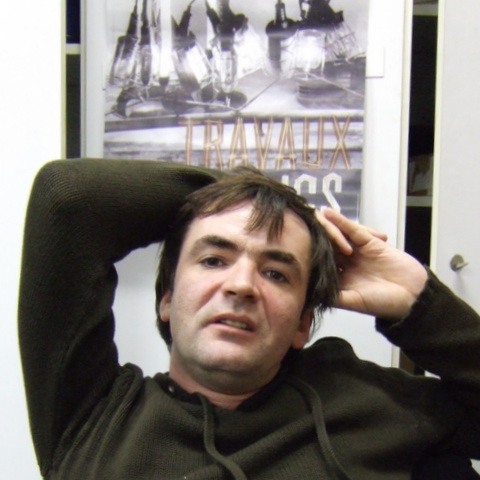Dietmar Berwanger
Researcher, CNRS

Mail: dwb@lmf.cnrs.fr
Phone: +33 (0)1 81 87 54 42
Office: 2S59, Bâtiment ENS - Nord
Laboratoire Méthodes Formelles (LMF)
Université Paris-Saclay, CNRS, ENS Paris-Saclay
4 avenue des Sciences • 91190 Gif-sur-Yvette, France
About Me
I am a CNRS researcher in formal methods and game theory, with a background in logic and finite model theory. My work focuses on strategic coordination in systems with imperfect or evolving information, especially in relation to signalling and infinite-duration games.
At the Laboratoire Méthodes Formelles (LMF), I am leading the Modelling Cluster Pôle Modèles. I serve on the French Steering Committee of the STACS conference.
June 2026: Half a Century of Agreeing to Disagree
I am co-organising the Forth Paris Workshop on Game Theory and Language, to be held on 11–12 June 2026 at Université Paris-Panthéon-Assas to honour the fiftieth anniversary of the publication of Robert Aumann's seminal paper "Agreeing to Disagree".
Internship Offers
- Faithful Nash Equilibria in Games over Graphs
M1–M2 internship on eliminating non-credible threats in infinite games, beyond subgame perfection. - Synthesis of Signalling Strategies in Distributed Networks
M1–M2 internship on information transmission and synthesis in distributed architectures.
The M2 internship proposals can be extended to a PhD project.
Working Paper
Synthesising Full-Information Protocols
We study a communication model where processes reveal all their local information whenever they interact — but an indeterminate environment controls when and with whom these interactions occur. This yields systems where a process may receive unbounded information at once.
In a setting modelled by synchronous games with imperfect information on finite graphs, we give a decision procedure for the synthesis of a process against fixed peers and an ω-regular specification. The key difficulty lies in constructing a finite representation of information trees with unbounded branching. Our procedure is non-elementary, and we prove a matching lower bound for the complexity of the synthesis problem.
→ Download the working paper (PDF)



